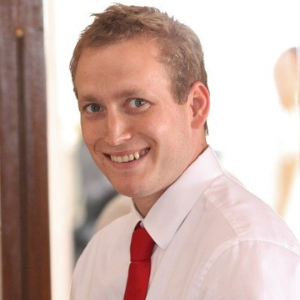
PROF. MERCEDES CHECHETA LÓPEZ DE BLANCO
Venezuelan National Academy of Medicine,
Bengoa Foundation for Food & Nutrition
Topic: Problems, Omission & Gaps in the First 1000 Days of Life in Low and Middle Income Countries
Professor Mercedes López de Blanco is a corresponding member of the Venezuelan National Academy of Medicine and a medical surgeon who graduated from the Central University of Venezuela with a Cum Laude qualification. She also holds a postgraduate degree from the University of London (Diploma of Child Health) and has dedicated more than half her life to her greatest scientific concern: the subject of nutrition, growth, and development in Venezuela. She presides the new working group of the Venezuelan Paediatric Society: the DOHad Chapter.

PROF. STEFAN VAN BUUREN
University of Utrecht, Netherlands
Topic: Extending a Cross-sectional Reference with a Longitudinal Component
Stef van Buuren is Professor of Statistical Analysis of Incomplete Data at the University of Utrecht and Principal Scientist at the Netherlands Organisation for Applied Scientific Research TNO in Leiden. His interests include the analysis of incomplete data, child growth and development, computational statistics and measurement. Van Buuren is the inventor of the MICE algorithm for multiple imputation of missing data. He created the growth charts used in the Dutch child health care system, designed the D-score, a new system for expressing child development on a quantitative scale, and created the Joint Automatic Measurement and Evaluation System (JAMES), an R-based open online platform for delivering individual growth analyses. He consults for the World Health Organization and the Bill & Melinda Gates Foundation. See https://stefvanbuuren.name for more background.

PROF. TIM COLE
Institute of Child Health, University College London, United Kingdom
Topic: SITAR Growth Curve Analysis - Universal Pubertal Height Growth and Seasonal Infant Weight Growth
Tim Cole is a statistician with longstanding interests in human growth and body size. He studied at the Universities of Cambridge and Oxford in the UK, and subsequently gained his Cambridge PhD and ScD in medical statistics on the basis of published work. After Oxford he joined the British Medical Research Council in 1970, which continued to support him for 49 years until 2019. After 5 years working on lung function at the MRC Pneumoconiosis Research Unit in South Wales he spent 23 years at the MRC Dunn Nutrition Unit in Cambridge, where he developed his interests in child growth and nutrition. He moved to the Institute of Child Health, University College London in 1998, where he holds a personal chair in medical statistics, and since 2019 has been a professorial research associate.
His main research interests are the statistics of anthropometry and growth and the factors affecting them. This extends from prematurity and birth, through infancy, childhood and adolescence, and across the life course. It includes adiposity indices based on weight and height such as BMI, and life course and inter-generational aspects of anthropometry. He has invented several novel growth charts, including the International Obesity TaskForce child obesity BMI cut-offs, and his LMS method is the statistical basis for constructing national growth references in the UK, the USA, WHO and elsewhere. The LMS method has applications in diverse areas including endocrinology, malnutrition, obesity, life course and bone health.
More recently he has developed the SITAR model for analysing longitudinal growth, which has particular applications in infancy and puberty when it can estimate the timing of growth spurts in individuals such as peak height velocity. He has produced open source software to simplify growth assessment.
He has also contributed to the statistics of human nutrition in the areas of infant feeding, child body composition, child bone health, energy intake and energy expenditure. Another interest is the use of dental and skeletal age imaging for assessing age in unaccompanied asylum-seeking children.
Tim Cole has published over 600 peer-reviewed research papers in statistics, child growth and nutrition, of which 15 have been cited more than 1000 times on Google Scholar. Altogether he has over 110,000 citations with an h-index of 152. He is a Fellow of the Academy of Medical Sciences, and recipient of the Bradford Hill medal of the Royal Statistical Society.

DR. JOSEPH FREER
Queen Mary University of London, United Kingdom
Topic: Does Stunting Still Matter in High Income Countries?
Joseph Freer is a National Institute for Health and Care Research Academic Clinical Fellow at the Wolfson Institute of Population Health, Queen Mary University of London. He divides his time between academic work in child public health and clinical practice as a specialty registrar in primary care. He graduated in medicine from Imperial College London and in philosophy from King’s College London, after which he undertook postgraduate training in tropical medicine at the London School of Hygiene & Tropical Medicine. He has worked in public health and research roles in the UK, Switzerland, Zimbabwe and South Africa, investigating overlapping areas of maternal and child health. In 2017, he was awarded an NIHR fellowship, which he has used to co-develop a growth and development screening programme in East London, alongside projects investigating the causes and consequences of short stature (or stunting) in the United Kingdom.

PROF. DR. STRUAN F.A. GRANT
PhD, University of Pennsylvania, US
Topic: 3D Genomic Strategies to Understand Complex Trait Genetic Architecture
Dr. Struan F.A. Grant is Professor of Pediatrics at Perelman School of Medicine, University of Pennsylvania; Daniel B. Burke Endowed Chair for Diabetes Research; Director, Center for Spatial and Functional Genomics, Divisions of Human Genetics and Endocrinology & Diabetes, Children’s Hospital of Philadelphia.
As a Director of the Center for Spatial and Functional Genomics at the Children's Hospital of Philadelphia, Dr. Grant’s current work primarily involves investigating disease genomics with a specific focus on pediatrics. Utilizing high-throughput genotyping and sequencing technologies, combined with statistical and bioinformatic approaches, his goals include unravelling genomic puzzles related to childhood obesity, pediatric bone strength determination, early onset diabetes and cancer. These phenotypes are known to be strongly determined by genetic factors; however, resolving genomic contributors to such complex phenotypes in adults has been impeded by interaction with strong environmental factors. Distillation of the genomic architecture in these complex traits should be easier to determine in children, where the relatively short period of their lifetime limits the impact of environmental exposure. Given the global prevalence of such diseases, prevention of these disorders and their serious complications must be addressed in order to reduce individual morbidity and the economic burden on society. The highlights of Dr. Grant’s career are the discovery of the polymorphic Sp1 site in the COL1A1 gene and its association with osteoporosis, the identification of variation in the TCF7L2 gene playing a key role in conferring type 2 diabetes risk and providing leadership in an international genetics effort to characterize genes influencing birth weight and common childhood obesity risk. He has also previously played a role in uncovering genes involved in other traits ranging from IBD to autism to cleft lip and palate.

DR. NICOLA HAWLEY
PhD, Yale University, US
Topic: Growth, Body Composition and Chronic Disease Risk Among Samoan Children: Lessons from the Ola Tuputupua'e (Growing Up) Cohort
Dr. Nicola Hawley is an Associate Professor of Epidemiology (Chronic Diseases), Department of Chronic Disease Epidemiology, Yale University, School of Public Health. Focusing predominantly on the health of Pacific Islander populations, her expertise is in the aetiology and prevention of obesity-related chronic disease in resource-poor, low-income settings. Methodologically, Dr. Hawley employs a life-course approach that utilizes cross-sectional, cohort, and randomized controlled trial designs to address questions of causality and identify critical periods of susceptibility. She is a mixed-methods expert and an advocate for community-engaged approaches to research, intervention, and development of health policy. Dr. Hawley is a g raduate of Loughborough University (BSc, 2005; PhD, 2009).

DR. WILL JOHNSON
Loughborough University, United Kingdom
Topic: Growth Mixture Modelling of Early-childhood Body Weight: a Cautionary Example
Will Johnson is a Senior Lecturer in Epidemiology and Population Health at Loughborough University in the UK. His research focuses on working with complex longitudinal data to investigate the life course epidemiology of non-communicable diseases in both high-income settings (e.g., UK and USA) and low- and middle-income settings (e.g., The Gambia and India). His experience and expertise are in investigating the role of body size trajectories and inequalities in obesity and related-disease development. Much of this work has been conducted across multiple cohorts of individuals born at different points in time, thereby allowing investigation of secular trends in longitudinal processes and relationships. From conducting this research, he has developed skills in the design and application of statistical methods to model longitudinal data, particularly those pertaining to human physical growth and obesity development. His research has resulted in over 80 publications (h-index 25; i10 index 50) and has been funded by (among others) the UK Medical Research Council, USA National Institutes of Health, the British Academy, and the Child Growth Foundation.

PROF. PÉTUR BENEDIKT JÚLÍUSSON
MD, PhD, National Institute of Public Health, University of Bergen,
Haukeland University Hospital, Bergen, Norway
Topic: Influences of Endocrine Disruptive Chemicals on Pubertal Development among Norwegian Children
Professor Pétur Benedikt Júlíusson is the Head of the Department of Health Registry Research and Development, National Institute of Public Health, Bergen, Norway; Professor at the Department of Clinical Science, University of Bergen; Senior consultant at the Department of Paediatrics, Haukeland University Hospital, Bergen, Norway.
Dr. Júlíusson's background is in paediatric endocrinology with a focus on childhood growth and pubertal development and childhood overweight and obesity. He divides his time between the Norwegian Institute of Public Health, Haukeland University Hospital, and the University of Bergen.
At the Norwegian Institute of Public Health, he administers and facilitates research and developmental activities attached to the national registries (Medical Birth Registry of Norway, Cause of Death Registry, Heart Registry and Abortion Registry). He also leads the HealthProfile 0-20 project and is involved in several other projects at the institute with the focus on health and development of children (Mother, Father and Child Study, The Child Growth Study, a WHO-COSI initiative). He is PI of two growth studies conducted in Bergen, one has provided prevalence numbers of overweight and obesity in Norwegian children, and growth charts for routine monitoring in the child health care. The other study was the first pubertal reference study done in Norway. This study using ultrasound as a novel objective method assessing testicular and breast tissue development. As a practicing paediatric endocrinologist his research questions originate in the clinic where he is, among other clinical duties, responsible for outpatient clinic for children and adolescents with severe obesity. In this clinic he is PI and co-PI for two randomized clinical treatment studies.
He is the author of 109 publications in international journals with peer review, indexed in Pubmed, first author of 16 publications, last author of 30. Over the past five years he has published 68 articles (pubmed) . His H-index= 24; total number of citations: 1758 (Scopus).
His talk in the ISGA session on environmental influences is based on the Bergen Growth Study 2 (BGS2). BGS2 is a cross-sectional study conducted in 2016 that included 1174 children aged 6-16 years and represented not only the first pubertal reference study conducted in Norway, but also provided novel objective ultrasound references of breast development and testicular volume that are recently being published. Blood samples are now analyzed for per- and polyfluoroalkyl substances (PFAS) and will be presented.

PROF. SLAWOMIR KOZIEL
Polish Academy of Sciences, Wroclaw, Poland
Topic: Hand Grip Strength and Maturational Timing in Children Exposed to Lead
Slawomir Koziel is a professor and head of Department of Anthropology Hirszfeld Institute of Immunology and Experimental Therapy, Polish Academy of Sciences. His research concerns biological and health consequences of social phenomenon, risk factors for obesity and epidemiology of obesity, effects of prenatal and early childhood stress on growth and development.
His whole scientific career was associated with Polish Academy of Sciences, where he has been employed since 1994. As a scholar, he visited several times Free University in Brussels, Belgium, Oxford University in UK, and Vidyasagar University in Midnapore, India. He is an international Fellow of the Unit for Biocultural Variation and Obesity in Oxford University and a member of several scientific organisations.
His early work concerned the analysis of the human growth curves, using structural mathematical models matched with longitudinal measurement data of children from Wroclaw Longitudinal Study. This knowledge was used in his doctoral thesis defended in 1997. After this period, he took part in different areas of research: studies on biological aspects of horizontal and vertical social mobility, revealing a selective upward social mobility of taller individuals, studies on the influence of parental radius on the offspring growth, studies on biological consequences of economic and political transition which occurred in Poland in late 80’s and early 90’s of the last century. He also has been working on risk factors of obesity, especially socio-economic factors, among Polish population. Recently, he has been focused on the effect of maternal prenatal stress, induced by natural disaster, on postnatal growth and development of children, as well as the effect of arsenic and heavy metals exposure on children’s growth and development.
He is an author or co-author of more than 170 scientific papers. He was a leader of several national and international scientific projects supported by British Council and European Union, and National Science Centre in Poland.

Dr. JOANNA ORR
Queen Mary University of London, United Kingdom
Topic: Does Stunting Still Matter in High Income Countries?
Joanna Orr is currently a Postdoctoral Researcher at Queen Mary University of London's Centre for Genomics and Child Health. She completed an MSc in Applied Social Research in 2016 at Trinity College Dublin, having previously completed a BA in International History and Politics at the University of Leeds. She was awarded an Irish Research Council Government of Ireland Postgraduate Scholarship to complete her PhD which focused on the role of religiosity in life-course health in Ireland's over 50s population. She is currently part of a project focusing on stunting in the United Kingdom, including its socioeconomic determinants and potential life-course implications. Part of the project includes testing a screening programme for early identification of children with underlying medical conditions causing stunting. Her research interests include the social determinants of health and health along the life-course.

PROF. LAWRENCE M. SCHELL
Ph.D., University at Albany, State University of New York, US
Topic: Human Sexual Maturation and Chemical Exposure: Consistencies and Variations in Results from Studies
Professor Lawrence M. Schell is a distinguished Professor at the Department of Epidemiology and Biostatistics and Department of Anthropology at the University at Albany, State University of New York; Clinical Associate Professor of Paediatrics at the Albany Medical College, Albany, NY.
Dr. Schell researches the biological effects of urban living on human populations, focusing on three intersecting areas: pollutant exposures particularly metals and organochlorines, child growth and maturation, and health disparities. He has conducted four major studies of pollutants and health, child growth and development. The first was of socioeconomically depressed expectant mothers, approximately half African American, in Albany NY that found reduced size at birth and less infant growth in relation to prenatal (maternal) lead levels. Working in partnership with the Akwesasne Mohawk Nation that was exposed to polychlorinated biphenyl pollution, they conducted three studies over the next twenty years. Results pertain to adolescent size (overweight and obesity), sexual maturation, thyroid function, and cognitive-behavioral status of 10-17-year olds, as well as immune function and women’s reproductive health. The work with the Mohawk has been a 25-year collaboration and has involved multiple papers co-authored with Mohawk collaborators. This work is sometimes cited as a model of collaborative and mutually respectful research between scientists and Native Americans. Beginning with the study of poor women in Albany, it was clear that exposure to pollutants in the US affects communities of color disproportionately affecting their health adversely. In 2005 he established the Center for the Elimination of Minority Health Disparities and served as its director until 2021 reflecting his interest in urban health and disadvantaged populations. The CEMHD has been funded by the NIMHD since 2004. Currently, he continues as a professor and as a consultant advisor on the Croatian Island Birth Cohort Study and with the Bergen Growth Studies group.

DR. JELENA ŠARAC
Institute for Anthropological Research, Zagreb, Croatia
Topic: Island Life — Dreams and Realities
Jelena Šarac, PhD, is an anthropologist and a research associate at the Center for Applied Bioanthropology, Institute for Anthropology, Zagreb, Croatia. Her research interest involves anthropological investigation of maternal and child health, with special emphasis on the development of complex diseases, as well as evolutionary biology and population genetics. Her early work was focused on the anthropological analysis of genetic diversity and population structure in the eastern Adriatic and the wider area of Croatia and Europe based on molecular genetic markers of DNA (mitochondrial DNA and Y chromosomes) and the study of microevolutionary, historical and cultural processes that shaped the genetic landscape of these populations. In the last years her focus shifted towards the identification of risk factors for the development of complex non-communicable diseases (especially metabolic syndrome, diabetes mellitus and obesity) in early childhood, adolescence and adulthood and means of their prevention, through studies performed on Croatian islands. The investigation of maternal and child health in Dalmatia, Croatia and the identification of early risk factors affecting future well-being of the child have been in the centre of her latest work, based on her active involvement in the “Croatian Islands’ Birth Cohort Study (CRIBS)”. From 2010 onwards she taught several Anthropology undergraduate courses at the Faculty of Humanities and Social Sciences and the Faculty of Science and she is an author or co-author of more than 40 scientific publications.

PROF. JANINA TUTKUVIENE
MD, PhD, Vilnius University, Lithuania
Topic: Growth of Preterm Children in Early Childhood: the Relationship Between Gestational Age, Body Size, General Health Status, and Timing of Diseases
Janina Tutkuviene is a medical doctor, anatomist and anthropologist, head of the Department of Anatomy, Histology and Anthropology, Institute of Biomedical Sciences, Faculty of Medicine, Vilnius University. Her scientific interest is a broad interdisciplinary area that covers physical anthropology, clinical auxology, reproductive biology, human adaptation and ecology, evolutionary medicine. She has elaborated growth references for Lithuanian children. Currently, her scientific scope is related to growth and maturation of children, growth programming, physical status in relation to different clinical pathologies, worldwide variation in body size and maturation, secular trend, body image and attractiveness, head and face morphology, morphological and functional asymmetry of the body. Janina Tutkuviene has published (together with co-authors) over 230 research papers. She has delivered many scientific presentations or keynote lectures at the Universities of different countries in Europe and US. Janina Tutkuviene has been a supervisor or consultant of 12 PhD students, currently she is supervising five PhD theses. Professor took part at several EC projects (STOP-II, AGIS, ISEC, Leonardo da Vinci, HORIZON 2020). Janina Tutkuviene is an active member of many international scientific societies: European Anthropological Association (EAA); International Association of Human Biologists; Society for Study of Human Biology (SSHB); International Auxological Society; International Union of Anthropological and Ethnological Sciences (IUAES). She is one of the editors of the journals Anthropologischer Anzeiger and HOMO. Professor has a broad collaboration with scientists from many countries (Austria, Croatia, Germany, Latvia, Poland, Switzerland, UK, US and the others).
PROF. JONATHAN WELLS
UCL Institute of Child Health, United Kingdom
Topic: The Double Burden of Malnutrition: an Evolution Perspective
Jonathan Wells is Professor of Anthropology and Paediatric Nutrition at UCL Great Ormond Street Institute of Child Health, UK. He received a BA in Social Anthropology, an MPhil in Biological Anthropology and a PhD in Biological Anthropology and Human Nutrition from the University of Cambridge. He is a biological anthropologist specialising in research on the developmental origins of adult health and disease, with particular interests in infant and child nutrition, breastfeeding, growth and body composition, childbirth, social inequality and evolutionary public health. He contributes to cohort studies and randomised trials of nutritional interventions across South America, Sub-Saharan Africa and Asia. He led a Lancet series on Evolutionary Public Health in 2017, and has published two books with Cambridge University Press: ‘The evolutionary biology of human body fatness: thrift and control’ (2010), and ‘The metabolic ghetto: an evolutionary perspective on nutrition, power relations and chronic disease’ (2016).

PROF. BABETTE S. ZEMEL
University of Pennsylvania, US
Topic (Tanner lecturer): Advances in the Study of Human Growth and the Challenges Ahead
Babette Zemel is a professor of Pediatrics at the University of Pennsylvania Perelman School of Medicine and Director of the Nutrition and Growth Laboratory at The Children's Hospital of Philadelphia. She also serves as an editor of the Annals of Human Biology. Dr. Zemel received her PhD in Biological Anthropology at the University of Pennsylvania in 1989 after completing fieldwork in highland Papua New Guinea. She joined the Division of Gastrenterology, Hepatology and Nutrition at The Children's Hospital of Philadelphia in 1991, where she has been conducting research and training in child growth for the past 30 years.
Her research program has two main goals. The first goal is to improve growth assessment. She has developed pediatric reference ranges for bone density, body composition, premature infants and children with Down syndrome. The second goal is to improve understanding of lifelong health and how it relates to childhood antecedents of physical growth and maturation, body composition, population ancestry/genetics, and lifestyle factors. Such understanding has public health implications for disease prevention and lifelong wellness, and also addresses concerns for children across a wide spectrum of chronic diseases who experience impaired growth, altered body composition and limitations in nutrition and physical activity. Her work is primarily focused on the development of bone fragility and obesity. Her research has advanced understanding of bone mineral accretion from early childhood through adulthood, and the effects of growth, muscle development, physical activity, diet and genetics on bone health during this critical life phase. She also investigates childhood body composition and health outcomes in the general population and in children with chronic diseases, including Down syndrome, children with kidney disease, sickle cell disease, cardiac malformation, cancer survivors, inflammatory bowel disease and diabetes. Her current active studies include infant growth and development of the gut microbiome in African American children and the genomics of bone and body composition changes in youth.

